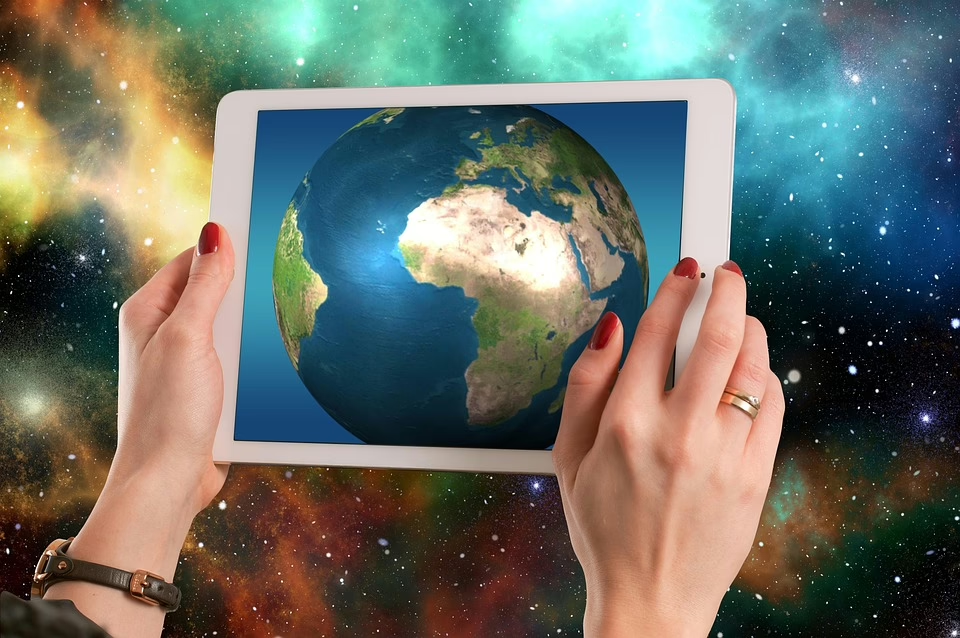Understanding Technology: More Than Just Innovation
Introduction
In the 21st century, the term “technology” is often synonymous with innovation—referring primarily to the latest gadgets, apps, or breakthroughs in various fields. However, a deeper examination reveals that technology encompasses much more than the mere act of creating new tools or systems. Understanding technology requires a comprehensive look at its definition, evolution, implications, and its intersection with culture, society, and ethics. This article endeavors to provide a holistic understanding of technology, illustrating its multifaceted nature and its impact on human existence.
The Definition of Technology
At its core, technology can be defined as the application of scientific knowledge for practical purposes. The word itself is derived from the Greek “techne,” meaning “skill,” and “logia,” meaning “study.” This definition implies that technology is not merely about making things but also about understanding how those things work and their implications for society.
Philosopher Martin Heidegger suggested that technology is not merely a tool but a way of revealing or understanding the world and our place within it. This perspective invites us to consider technology not as an isolated concept but as part of a broader context encompassing human experience and societal development. Thus, technology serves as a lens through which we can explore complex interrelations and meanings in our lives.
The Evolution of Technology
Historical Context
The evolution of technology can be traced back to ancient civilizations, where tools such as the wheel, the plow, and early forms of communication laid the groundwork for subsequent advancements. Each technological epoch—be it the agricultural revolution, the industrial revolution, or the digital age—has had profound effects on social structures, human behaviors, and cultural norms.
The agricultural revolution enabled societies to shift from nomadic lifestyles to settled farming communities, giving rise to cities and complex social organization. The industrial revolution, characterized by mechanization and mass production, led to urbanization and fundamentally changed labor dynamics. Today, the digital age is reshaping how we communicate, learn, and function in the world.
The Role of Innovation
Innovation is often the driving force behind technological advancement, leading to new products, services, and business models. Modern innovations like artificial intelligence, biotechnology, and renewable energy technologies are reshaping industries and societal norms.
However, it is important to differentiate between innovation as a process and the end products of that process. While innovation often results in new devices or systems, the real value of technology lies in how it improves lives, solves problems, and enhances human capabilities.
The Impact of Technology on Society
Cultural Shifts
Technology acts as both a catalyst and a mirror reflecting the cultural values of the time. The introduction of the printing press democratized knowledge, allowing for the spread of ideas and contributing to social movements such as the Renaissance and the Reformation. Similarly, the internet has transformed how we access information and interact with one another, fostering a global community but also raising concerns about misinformation and polarization.
New technologies can challenge existing cultural norms, leading to shifts in identity, gender roles, and interpersonal relationships. For instance, social media has redefined communication, creating new landscapes for self-expression while also raising issues of privacy and mental health.
Economic Implications
Technology has historically driven economic growth, creating new industries and jobs while rendering others obsolete. The phenomenon of creative destruction, as described by economist Joseph Schumpeter, illustrates how innovation can lead to the decline of established companies and industries.
While technology can enhance productivity and efficiency, it also raises questions about inequality and access. Not everyone benefits equally from technological advancements; disparities in access to digital technologies can exacerbate existing inequalities in education, health, and economic opportunities.
Ethical Considerations
As technology continues to advance at an unprecedented pace, ethical considerations become increasingly critical. Issues such as data privacy, surveillance, artificial intelligence ethics, and the environmental impacts of technological production must be thoughtfully examined.
For instance, the deployment of AI technologies has sparked debates about algorithmic bias and accountability. The ethical implications of automation threaten the job security of millions, raising questions about the future of work and societal responsibilities.
Understanding Technology in Everyday Life
Personal Interactions
Modern technology influences how we interact with one another. From smartphones to social media platforms, our daily communication is mediated through technology. While these tools offer connectivity and immediacy, they also impact the quality and nature of our relationships.
Consider the rise of virtual communication, particularly in the wake of the COVID-19 pandemic, which saw a significant shift towards remote work and virtual socializing. While offering convenience, this shift also led to discussions about loneliness, mental health, and the importance of face-to-face interactions.
Learning and Education
Technology is revolutionizing education. Online learning platforms, virtual classrooms, and educational apps have made knowledge more accessible than ever before. However, these tools can also create challenges in terms of engagement, equity, and the quality of education.
The digital divide remains a significant concern, where students in underprivileged regions may not have access to technology or high-speed internet, exacerbating educational inequalities. Moreover, the role of technology in developing critical thinking skills is an ongoing debate among educators.
Health and Well-Being
In the realm of healthcare, technology has ushered in groundbreaking changes like telemedicine, wearable health devices, and personalized medicine. These innovations enhance access to care and improve health outcomes, yet they also introduce dilemmas related to data security and ethical use.
The rise of health monitoring apps and devices brings attention to issues around consent, data ownership, and the implications of constant health tracking. As technology becomes more integrated into our health routines, understanding its impact on our well-being becomes imperative.
The Future of Technology: Trends and Predictions
Artificial Intelligence and Automation
AI is poised to revolutionize countless sectors, from healthcare and finance to transportation and entertainment. As AI capabilities expand, opportunities for efficiency and innovation will continue to grow. However, concerns about job displacement and ethical ramifications necessitate a balanced approach to its development and implementation.
The Internet of Things (IoT)
The IoT refers to the network of interconnected devices that communicate and exchange data. This technology has the potential to transform industries, enhance productivity, and create smart environments. However, concerns about data privacy and security must be addressed to fully realize its benefits.
Sustainable Technology
As the world grapples with climate change, the role of technology in creating sustainable solutions cannot be underestimated. Renewable energy technologies, smart grids, and sustainable agriculture practices are vital in addressing environmental challenges.
Conclusion
Understanding technology as more than just innovation requires a multidimensional perspective that encompasses history, culture, society, and ethics. Technology is a tool that can either enrich our lives or exacerbate existing inequalities, depending on how we choose to harness its potential.
By critically examining the implications of technology, we can better navigate our increasingly digital world, ensuring that innovations serve the greater good while promoting inclusivity and sustainability. The challenge lies in finding the right balance between technological advancement and its societal impact, enabling us to build a future that reflects our highest values and aspirations.
Footnotes
[^1]: Heidegger, M. (1977). The Question Concerning Technology and Other Essays. Harper & Row.[^2]: Schumpeter, J. A. (1942). Capitalism, Socialism and Democracy. Harper & Brothers.
[^3]: Castells, M. (2010). The Rise of the Network Society. Wiley-Blackwell.
[^4]: Brynjolfsson, E., & McAfee, A. (2014). The Second Machine Age: Work, Progress, and Prosperity in a Time of Brilliant Technologies. W. W. Norton & Company.
[^5]: Tapscott, D., & Tapscott, A. (2016). Blockchain Revolution: How the Technology Behind Bitcoin Is Changing Money, Business, and the World. Portfolio.
This article provides a comprehensive analysis of the multifaceted dimensions of technology while recognizing the necessity of critical engagement with its evolution and impact on society. For a discussion on specific topics or further detail, feel free to ask for further exploration.


























Add Comment